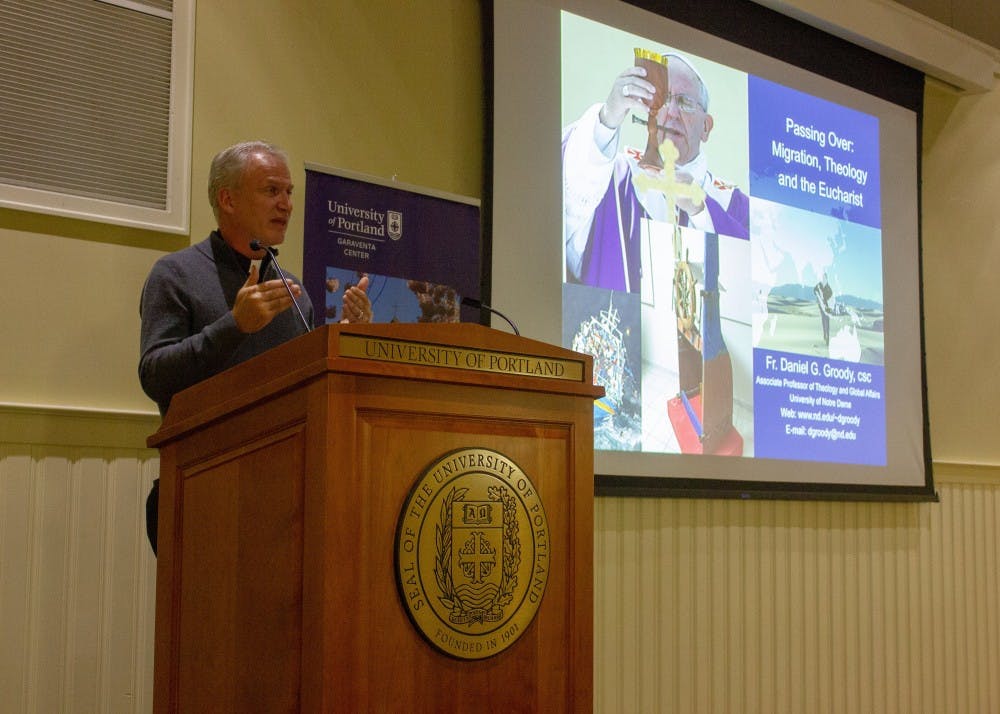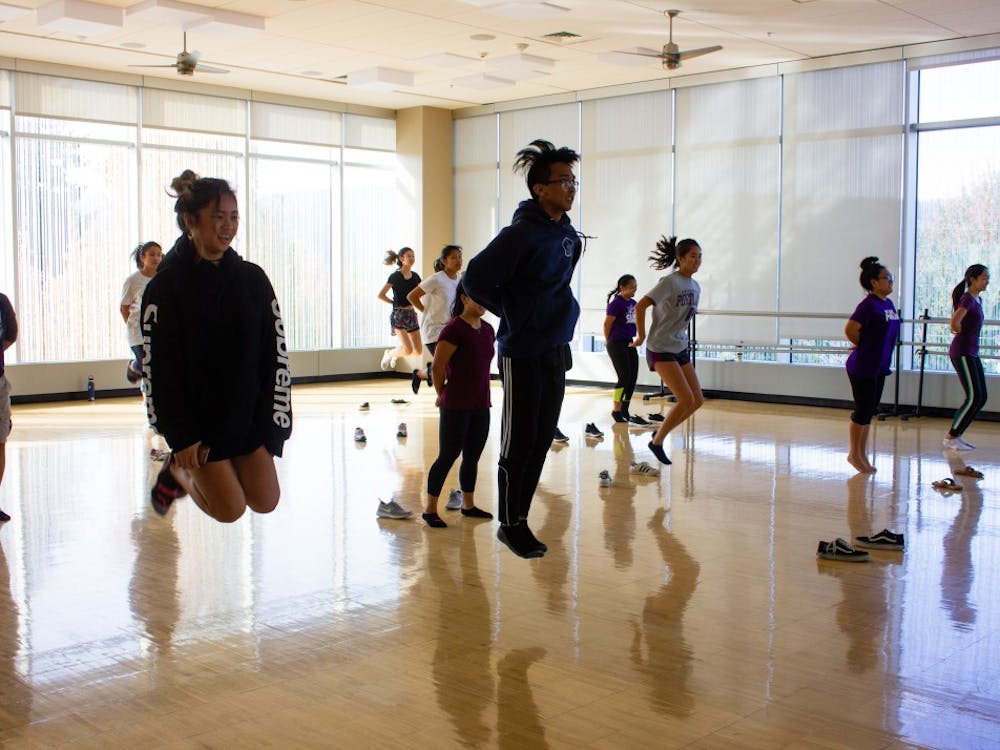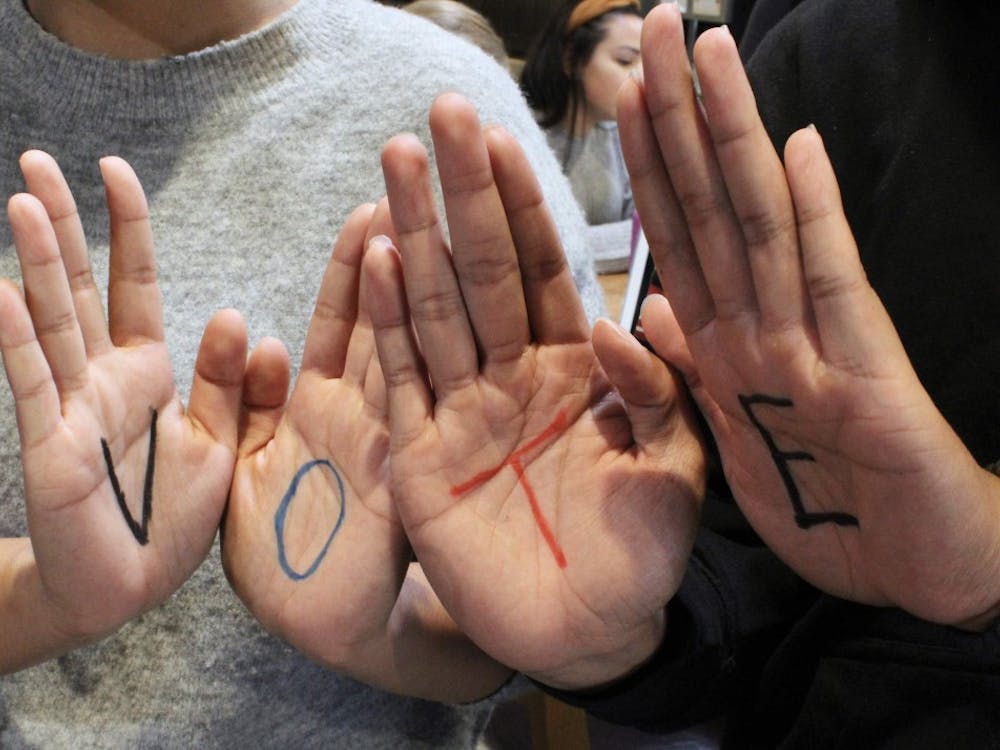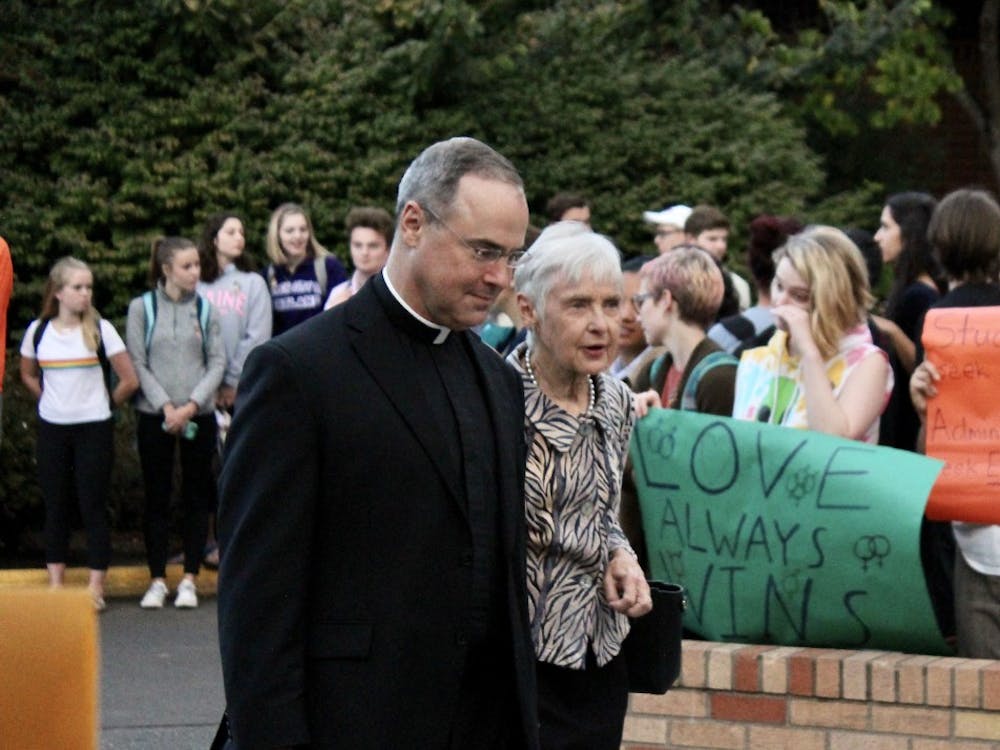On Wednesday evening, UP students and members of the community gathered to hear Fr. Daniel G. Groody deliver a lecture titled “Passing Over: Migration and the Eucharist.” Groody urged people to reflect about the stories we tell when we talk about migration, which affects how people view migration.
Groody also challenged the audience to look at current issues surrounding migration through the lens of faith. He argued that people of faith need to be educated and active in conversations involving migration issues, especially in the light of an increasingly prevalent migration crisis in the Mediterranean and in the midst of changing U.S. immigration policy.
Groody is director of the Global Leadership Program within the Kellogg Institute for International Studies and is the associate professor of theology and global affairs at the University of Notre Dame.
Groody has written several books and articles as well as produced films including “One Border, One Body: Immigration and the Eucharist”, and “Dying to Live: A Migrant's Journey.” The Garaventa Center in partnership with Catholic Charities of Oregon hosted the event. Laurie Laird, director of the Moreau Center, as well as representatives from Catholic Charities were present to offer suggestions to students on how they could help with migration issues.
Throughout the talk, Groody frequently referred to Pope Francis’ response to the humanitarian crisis in the Mediterranean, specifically on the island Lampedusa. Migrants hoping to find a better life will often take boats, hundreds of people over capacity, and attempt the trip to the island where they could seek asylum or other legal protection. The Pope held Mass on the island in July of 2013 to honor the lives of migrants that were lost, oftentimes because their ships would capsize.
Groody explained that from the wreckage of boats, four Communion Chalices were made and used in the Pope’s Mass. At this point in the lecture Groody lifted up from the podium one of the four Chalices, crafted in the same way as the Pope’s. It symbolized both salvation in the spiritual context of Catholic Eucharist, and the devastation of people who perished in the hopes of achieving new life.
Groody shared several anecdotes that accentuated the plight of people affected by migration.
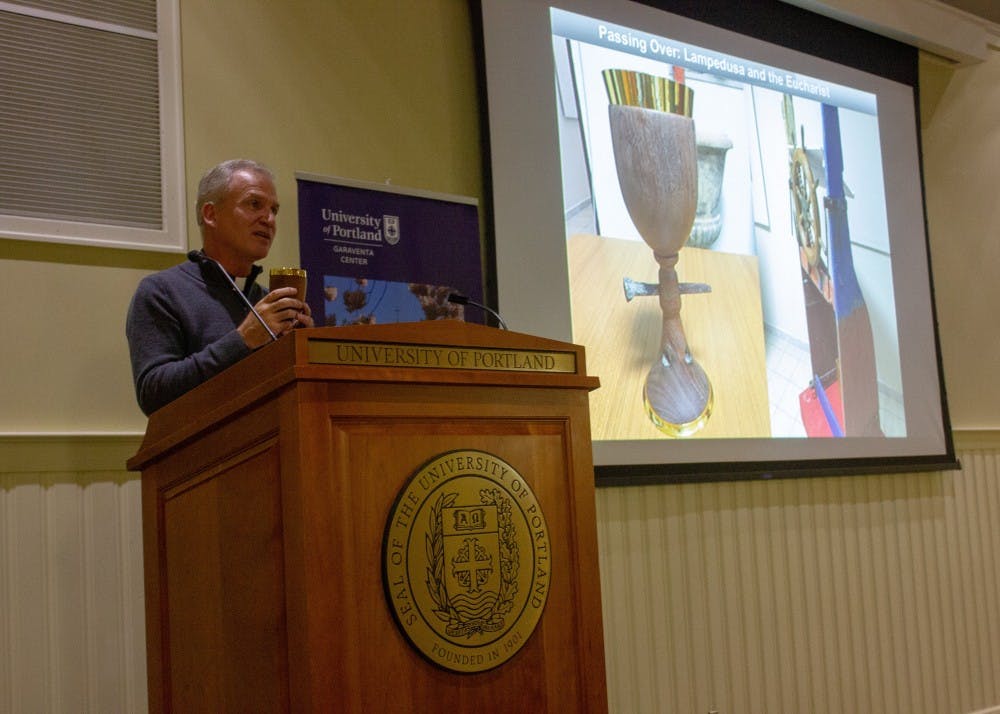
On looking into the heart
“When I was eight years old I remember going on a road trip with my family. And we got to the rest area and I found a pamphlet that made a very provocative impression on me because the question said ‘Did you realize you that could actually miss Heaven by 18 inches?’... It actually went on to say that the distance between the head and the heart in most people is 18 inches. God is not just someone who understands conceptually, but actually someone who encounters the depths of our heart.”
On Migration as a right
“Because when a person crosses a border and they are apprehended by authorities do they have no legal right to be there because they’re illegal, or an intrinsic right to be there because they’re human beings? I remember being at a meeting of the UN at Geneva one time and we in this debate in one of our small groups. One person said the state grants rights to these people. I said no they don’t — God grants rights to these people. It’s the state’s job to choose to protect it.”
On migration and its roots
“Migration has been with us from the beginning. It defines us more than we define it. And people are going to continue to move regardless of what kind of borders and policies that we put in place.”
On the importance of language
“One of the things that I am advocating for tonight is to reflect more consciously on the narratives that drive our positions on migration. What’s underneath our perspectives about migration? What's the conscious or unconscious narratives that shapes those positions? Those narratives are shaped by language. So those people who have been involved in literary studies, or cultural studies, or gender studies, or rhetorical studies know that language shapes our reality, in this case, language will also shape a narrative. And that narrative is first going to be shaped by the words that we use.”
On Challenging Narratives
“You have to do your homework, you have to look at the facts, you have to argue (immigration narratives) really seriously…We have a poverty of imagination and really a very superficial reactive debate about migration today which doesn't actually help us go to the deeper analysis here.”
On turning outwards
“Lastly, I think it brings out the connection to the Body of Christ. I think that the Eucharist helps us see what is something that’s real all the time. And I think that the Eucharist brings out that somehow the God who migrates to us also causes us to be in solidarity with those who are migrating today. Because at the end of the day it's not about us and them, its about all of us because we are also migrating to the gated community where we can isolate ourselves within the depths of our soul.”
Madison McManus is a news reporter at The Beacon. She can be reached at mcmanus20@up.edu.



